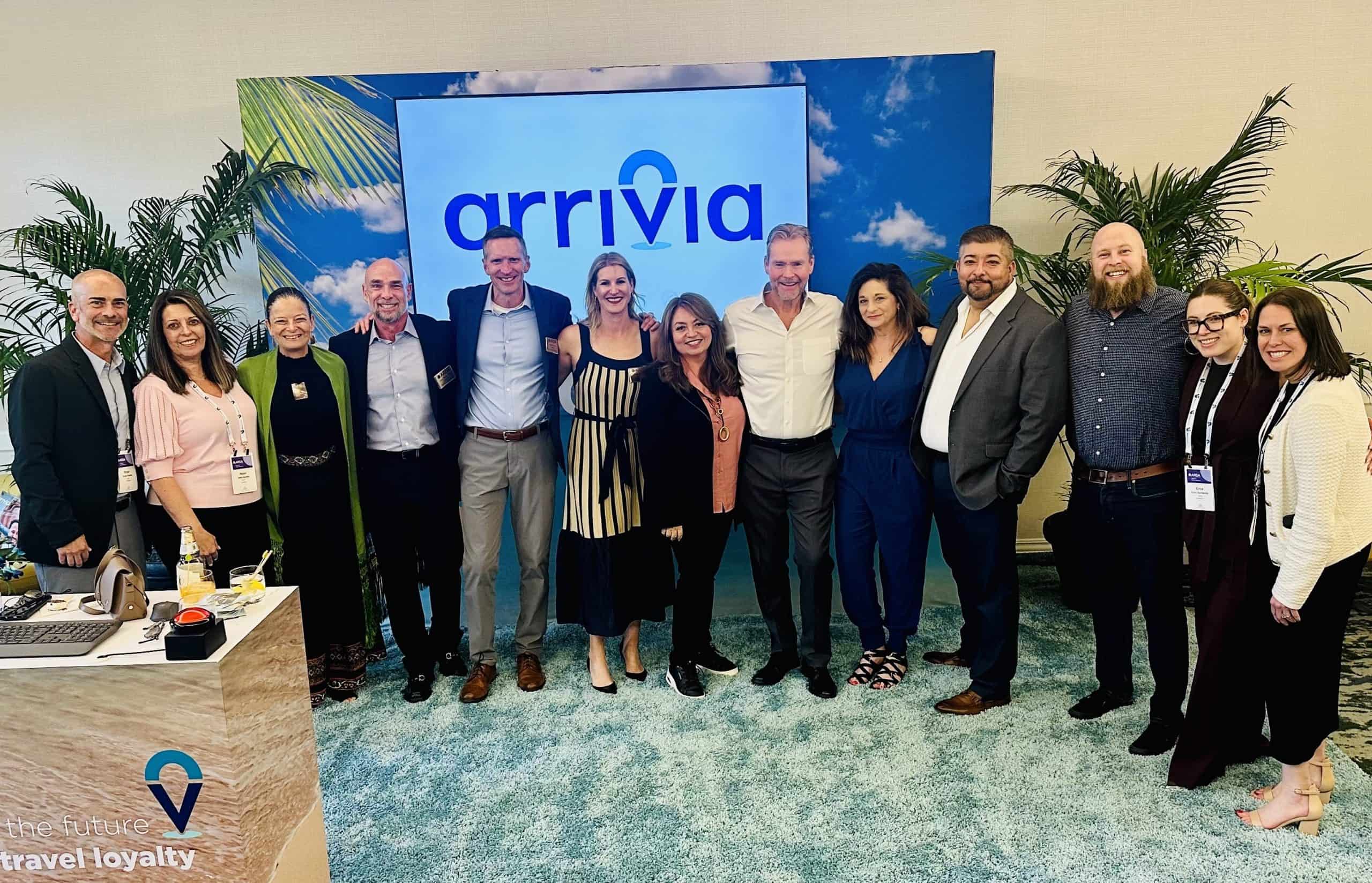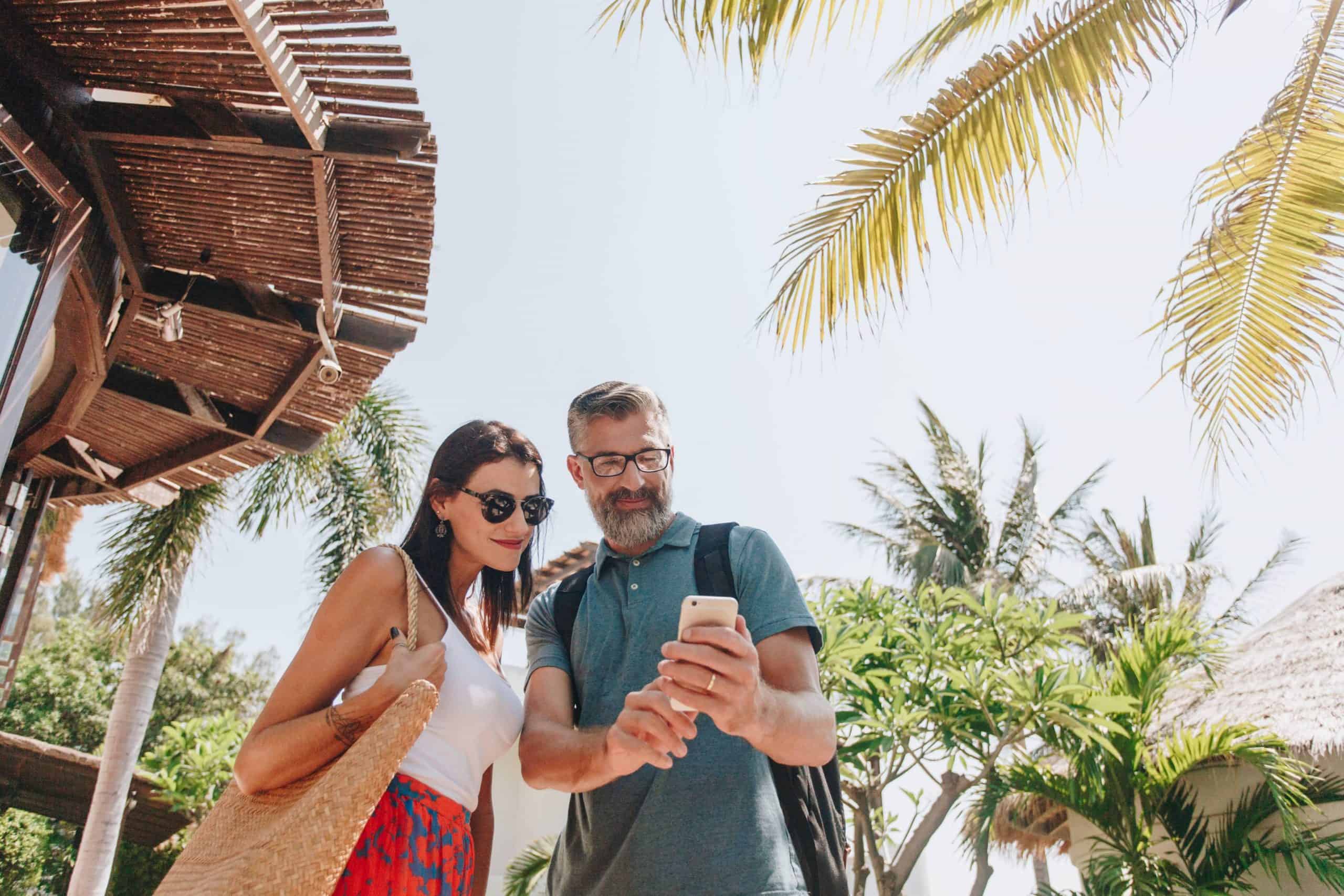Technology has long been the driving force behind the travel industry; however, recent innovations in artificial intelligence (AI) technology might just change the future of travel and tourism for good. Artificial intelligence enables computers and machines to perform traditionally human tasks, such as problem-solving, decision-making, and in this case, revolutionizing travel marketing.
AI technology leverages hundreds, if not thousands, of consumer data points to help travel brands simplify customer service, streamline travel planning, and deliver personalized recommendations, all with minimal human intervention.
How is AI Used in the Travel Industry?
Artificial intelligence technology is far from new — in fact, the earliest examples of AI-powered machine learning are from 1951! However, recent advancements in machine learning have enabled smart travel software to become faster and more reliable. Today, AI has the potential to automate manual processes, streamline operations, and ultimately enhance cost savings for travel brands.
“AI will transform the travel industry by enabling travel companies to provide more personalized and seamless experiences for their customers,” explains arrivia CMO Jeff Zotara. “This will not only improve customer satisfaction but also drive revenue growth and increase customer loyalty.”
So, what are some examples of AI within the travel industry? Examples of AI are just about everywhere in the travel and tourism industry. One is the chatbot that reschedules customers’ reservations. Another is the booking engine that predicts dynamic pricing for travel, and one more is the facial recognition feature that automatically logs members into travel loyalty rewards programs.
Take a look at just a fraction of the ways travel industry innovations leverage artificial intelligence technology.
Simplifying Customer Service
One of the most common examples of AI in the travel industry is within customer service. A whopping 58% of global businesses invested in AI-powered conversational marketing tools like chatbots and virtual customer assistants to respond to the onset of the Covid-19 pandemic. Years later, these AI-driven tools have been shown to reduce call, chat, and email inquiries by 70%.
Chatbots autonomously perform many consumer-facing tasks like shifting hotel reservations and tracking real-time flight statuses. This can explain why 90% of businesses report significant improvements in complaint resolution speed with such tools. AI customer service tools have also made their way to social media, where there are upwards of 300,000 chatbots on Facebook Messenger alone.
Streamlining Travel Planning
Beyond customer service tools, artificial intelligence technology has also improved consumers’ travel planning processes. Virtual customer assistants on travel websites and across social media have replaced physical travel agents, allowing customers to simply input a potential destination or travel activity and receive dozens of personalized recommendations in return.
Even better, artificial intelligence allows travel brands and travelers to track dynamic prices for the same hotel room, flight, or cruise line across multiple suppliers. AI can even predict the dynamic price for a specific timeframe or packaged deal — think along the lines of the Hopper mobile application for flights. These forecasting abilities help ramp up travel planning services.
Elevating Travel Loyalty Programs
It’s no secret that loyalty rewards programs generate a lot of daily data for travel brands. Customer and loyalty member data are invaluable for several reasons, primarily because they can help reveal engagement and purchase behavior trends. Rather than sift through this data manually, AI technology can assess and sort data sets to identify crucial trends in minutes.
Another use case for AI in travel loyalty programs, and the travel industry in general, is facial recognition. Facial recognition features, especially when deployed within a mobile loyalty application, enable program members to sign in to their accounts in seconds. Facial recognition also allows customers to access their mobile boarding passes, virtual identification cards, and more.
What is the Role of AI in Travel Marketing?
Now that you better understand AI in the travel industry, we can discuss its role in travel marketing. Artificial intelligence is poised to revolutionize travel marketing with advanced data analysis and pattern recognition. Through robust machine learning capabilities, AI-powered travel software can create customized travel recommendations based on customers’ personal preferences.
“AI can analyze a customer’s past travel bookings, search history, and social media activity to understand their interests and preferences. Then, it can use that information to create personalized travel recommendations that are tailored to the customer’s individual needs,” explains CMO of arrivia, Jeff Zotara.
Why are personalized recommendations so essential in travel marketing? The statistics speak for themselves. 90% of customers find personalized advertising appealing, and another 80% of consumers are likely to do business with brands that offer customized experiences. Fortunately, artificial intelligence technology has turbocharged personalized travel marketing.
Personalizing Travel Marketing with AI
Artificial intelligence can rapidly comb through customer data, such as previous search history, past travel bookings, and even recent activity on social media and travel review sites. Initial analysis reveals trends in customer sentiments and interests, enabling travel brands to segment their audience and hyper-tailor their marketing efforts to each group’s preferences.
By understanding customer interests, AI informs more relevant travel experiences that allow for eye-catching, engaging marketing materials. Personalized marketing can deliver up to eight times the return on investment (ROI) — and lift sales by at least 10%. Not to mention, findings from personalization efforts can tailor travel rewards offerings for a 6.4x lift in member satisfaction.
Overcoming Challenges in Implementing AI
“One of the challenges that travel marketers might face is the need for high-quality data,” says Jeff Zotara on the potential implications of AI in the travel industry. “AI algorithms rely heavily on data to make accurate predictions and recommendations, so travel marketers need to ensure that they have access to high-quality data that is relevant to their target audience.”
In other words, not all consumer data is created equal. What you should be on the hunt for are first-party data or insights your customers give you willingly. Nearly a quarter of today’s customers are happy to share some degree of personal data in exchange for personalized travel services. Satisfaction surveys, social media polls, and review questionnaires can help source first-party data.

What Leaders in Travel Technology Have to Say
So, is AI the future of the travel industry? Few individuals are more poised to answer this question than the Chief Marketing Officer of arrivia, the world’s largest stand-alone travel loyalty provider. Below, CMO Jeff Zotara shared his vision for the transformative role of artificial intelligence technology in the future of travel marketing and diverse travel rewards.
“AI will play a critical role in the future of travel marketing by enabling marketers to personalize their messaging and experiences. With AI, marketers will have the ability to analyze large amounts of data, identify patterns, and create personalized recommendations based on the customer’s preferences,” explains Jeff.
“In addition, AI will help travel companies to streamline their operations and reduce costs by automating manual processes and improving efficiency,” he continues. “Overall, AI will play a crucial role in shaping the future of travel marketing and the travel industry as a whole.”
Discover How AI Can Revolutionize Your Travel Marketing Strategy
You’d be hard-pressed to find travel companies that aren’t exploring ways to leverage Al to automate manual processes, streamline operations, and stay ahead of the competition. With artificial intelligence technology, travel brands can hyper-personalize their marketing messaging for top-tier customer engagement, ultimately driving revenue and enhancing member loyalty.
Now is the time to power your travel marketing strategy with artificial intelligence technology. However, don’t limit your use of AI in the travel industry to simple chatbots and virtual assistants. Instead, partner with the travel experts at arrivia to unlock a suite of white-label travel rewards technology and in-house marketing services. Contact arrivia today to learn more!



